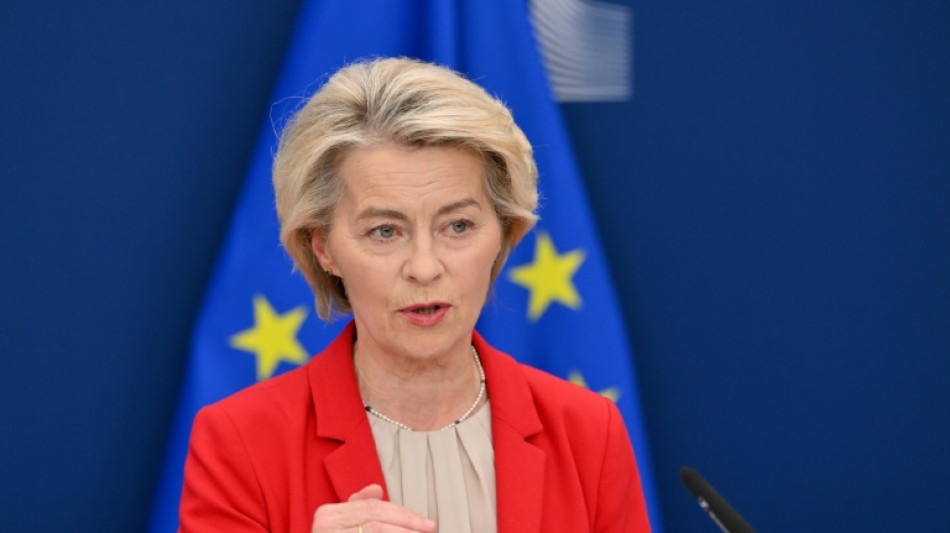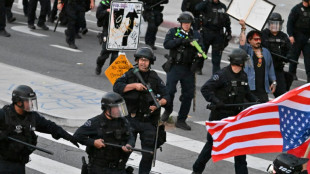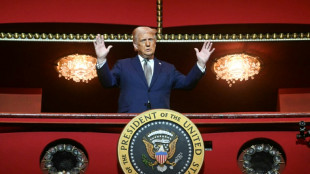

EU proposes lowering Russia oil price cap in new sanctions
The European Union on Tuesday proposed slashing a price cap on Russia's global oil exports, as part of a new package of sanctions over the Ukraine war.
The move comes ahead of a G7 summit in Canada next week where allies will push US President Donald Trump to be more aggressive in punishing the Kremlin.
"We are ramping up pressure on Russia, because strength is the only language that Russia will understand," European Commission president Ursula von der Leyen said.
"Our message is very clear, this war must end. We need a real ceasefire, and Russia has to come to the negotiating table with a serious proposal."
The European Commission, the EU's executive, suggested cutting the current oil price cap from $60 to $45 as Moscow drags its feet on a ceasefire in Ukraine.
The cap is a G7 initiative aimed at limiting the amount of money Russia makes by exporting oil to countries across the world.
Set at $60 by the G7 in 2022, it is designed to limit the price Moscow can sell oil around the world by banning shipping firms and insurance companies dealing with Russia to export above that amount.
To have most impact the EU and other G7 partners need to get the United States to follow suit and agree to the cut in level.
But Trump so far has frustrated Western allies by refusing to impose sanctions on Russia despite President Vladimir Putin's failure to agree a Ukraine ceasefire.
"My assumption is that we do that together as G7," von der Leyen said. "We have started that as G7, it was successful as a measure from the G7, and I want to continue this measure as G7."
- 'Massive' sanctions threatened -
Trump last week said he had a deadline to sanction Russia "in my brain", but warned that he may also target Kyiv if no advances are made in his peace push.
European leaders in May threatened Moscow with "massive" sanctions if it did not agree a truce.
"Russia lies about its desire for peace. Putin is taking the world for a ride. Together with the United States, we can really force Putin to negotiate seriously," EU foreign policy chief Kaja Kallas said.
As part of its 18th round of sanctions since Russia's 2022 invasion, the EU also proposed measures to stop the defunct Baltic Sea gas pipelines Nord Stream 1 and 2 from being brought back online.
Officials said they would also look to target some 70 more vessels in the "shadow fleet" of ageing tankers used by Russia to circumvent oil export curbs.
The EU in addition is looking to sever ties with a further 22 Russian banks and add more companies, including in China, to a blacklist of those helping Moscow's military.
One EU diplomat described the latest proposals as "one of the most substantive and significant packages we've discussed recently".
"It will hurt Russia's ability to finance its war machine. Now let's see how the discussions evolve."
The sanctions will need to be agreed by all 27 EU countries, and could face opposition from Moscow-friendly countries Hungary and Slovakia.
J.Becker--MP



